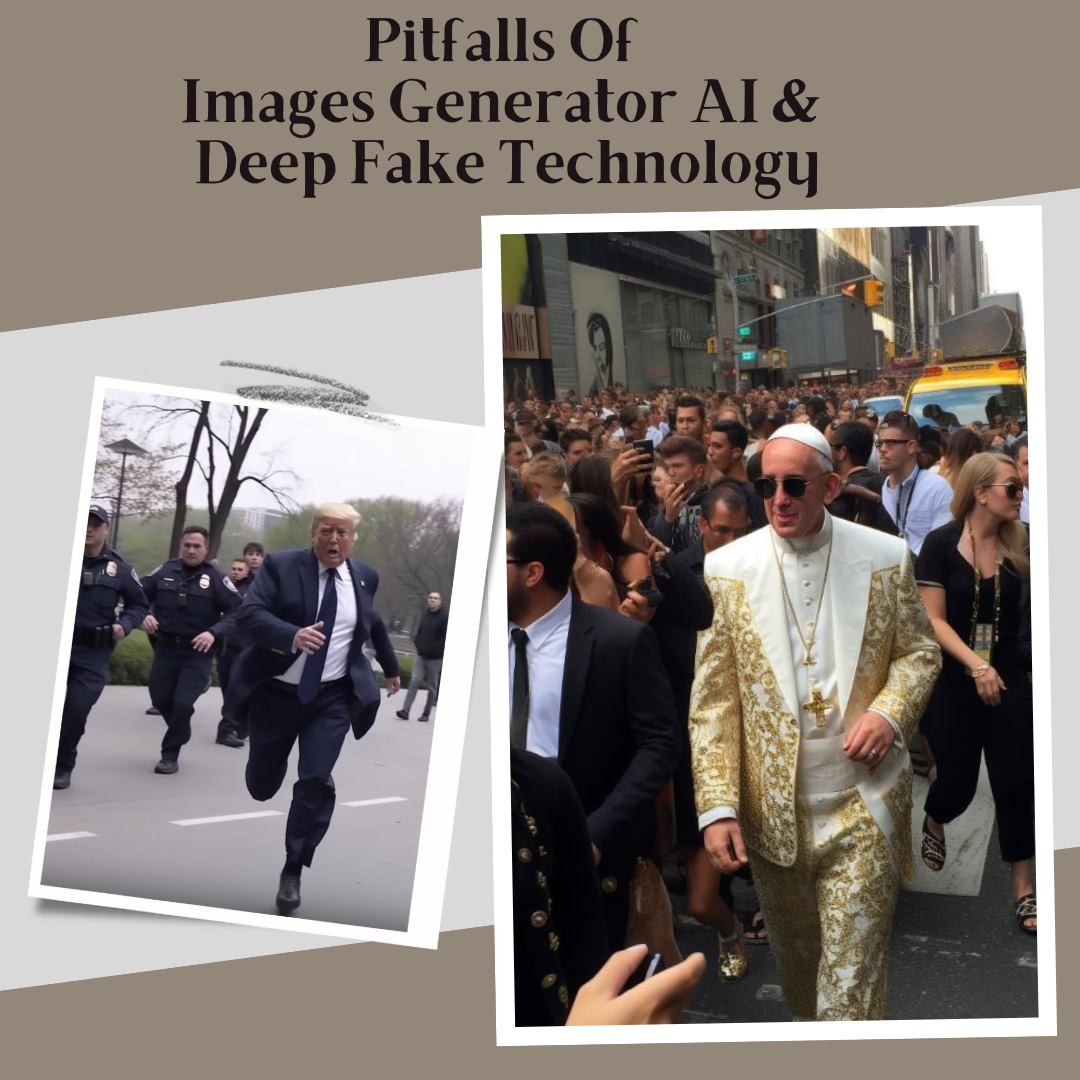
Pitfalls of Images created by AI and Deep Fakes
Pitfalls Of Image Generator AI And Deep Fake Technology
Introduction to Image Generator AI & Deep Fake
The emergence of image generator AI and deep fake technology has revolutionized the world of digital media. With the ability to create highly realistic images and videos, these technologies have opened up a range of possibilities, from enhancing the quality of visual effects in movies to creating more convincing virtual avatars. However, they also raise important ethical and societal concerns, particularly around issues of privacy, authenticity, and trust.
What is Image Generator AI?
Image Generator AI refers to a class of algorithms and neural networks that can generate realistic images from scratch or by modifying existing images. These algorithms are trained on large datasets of images, such as faces or landscapes, and can generate images that mimic the patterns and characteristics of the training data. Some popular examples of image generator AI models include Generative Adversarial Networks (GANs), Variational Autoencoders (VAEs), and DeepDream.
What are Deep Fakes?
Deep fakes refer to manipulated images or videos that are created using machine learning algorithms, typically GANs. These algorithms are trained on existing images or videos of a person or object, and can then generate new images or videos that convincingly mimic the appearance and behavior of the original. Deep fakes can be used to create highly realistic but fake videos of people, leading to concerns around the potential misuse of this technology for spreading false information or engaging in fraud.

Uses of Image Generator AI and Deep Fakes:
There are a variety of potential uses for image generator AI and deep fakes. In the entertainment industry, these technologies can be used to enhance the quality of visual effects in movies and video games, or to create more convincing virtual avatars for characters. They can also be used in research to generate realistic simulations of complex systems, such as the behavior of fluids or the structure of proteins.
However, these technologies also raise important ethical and societal concerns. One of the most significant concerns is the potential for deep fakes to be used to spread false information or engage in fraud. For example, deep fakes could be used to create convincing videos of politicians or other public figures saying or doing things that they did not actually say or do, leading to widespread misinformation and social unrest.
Another concern is the potential for deep fakes to be used for malicious purposes, such as revenge porn or cyberbullying. By creating fake images or videos of individuals, deep fakes can be used to harass or intimidate people in ways that are difficult to detect or prevent.
Conclusion
Image generator AI and deep fakes represent a powerful and transformative technology with a wide range of potential applications. While they offer many benefits, they also raise important ethical and societal concerns that must be addressed. As these technologies continue to develop, it is important that we work together to ensure that they are used in ways that are responsible, transparent, and ethical, and that we continue to develop strategies to mitigate the potential risks associated with their misuse.
Recent News on AI Image Generator & Deep Fakes & Images
Midjourney has stopped providing free access to their Image generator due to the explosion of deep fakes.
Following an increase in the creation of viral deep fakes using their AI technology, Midjourney, the company responsible for the popular text-to-image AI generator, has temporarily discontinued the free trial version of their service. Midjourney founder David Holz announced on the company’s Discord server that the free trials will be disabled until their system is improved, due to the high demand and abuse of the trial version.
An AI-generated form of media that appears authentic by modifying images, videos, or audio to make it seem like actual people are saying or doing things they never did is known as a “deep fake.” While they can be used for amusement and enjoyment, these AI-generated products can also spread misinformation, sway beliefs, or damage someone’s reputation.
During the current week, images of Pope Francis donning a fashionable white puffer jacket and a diamond-studded necklace gained immense popularity across the internet. Additionally, when various reputable news sources reported that former U.S. President Donald Trump was on the verge of getting arrested in New York, a multitude of pictures went viral that seemingly depicted the former president being pursued by the police. In both instances, these pictures appeared to be more authentic than similar types of fakes that were previously created by specialists using Photoshop.
Several generative AI websites, such as Midjourney and Playground AI, have already imposed limitations on prompts that involve sexual content. Nonetheless, the acceptability of deep fakes is still under discussion since all of these platforms generate images that are not authentic.
Midjourney provides subscription plans that range from $10 to $60 a month, depending on the user’s requirements and processing power, including the ability to execute concurrent jobs. They also offer yearly subscription plans.
It remains uncertain how discontinuing the free version will address the issue. Midjourney’s terms of service already prohibit offensive images of public figures or celebrities.
Source: Decrypt
Read more news on this site: eCommerce logistics value will double to US$771bn






